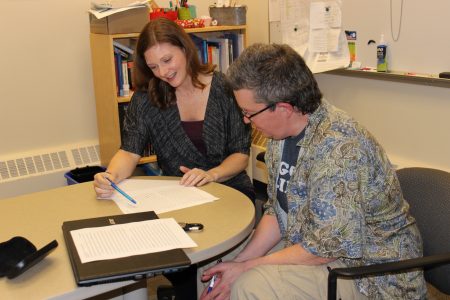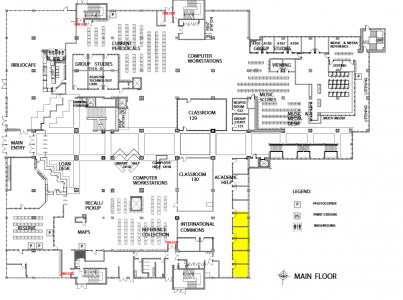By Thiago Hinkel
The process I went through as a teacher in Brazil to become a PhD candidate in the faculty of Education at the University of Victoria involved a series of steps. Learning about the procedures and formalities related to applying for both admission and for a student visa were certainly the ones that required the greatest amount of time and effort. In this post, I will share my journey related to figuring those steps out and reflect on the role of writing in succeeding in them.
I lost count of the hours I spent on UVic’s website reading about the graduate programs offered in Education and the requisites I needed to meet for admission. I soon found out I would have to contact a prospective supervisor and have their support before I could officially apply. The technical pieces I should consider for that first approach by email were clear to me due to the genre in question. I knew I would have to be mindful of audience, objectives, and language use. I had been working as a language teacher before that, and determining those elements was like preparing a lesson on writing. However, the challenge was dealing with questions whose answers, by that time, were not clear to me – What are my research interests? Why UVic? Why am I the right person for the position? What I knew then was that I would not be able to answer those questions before thinking about them thoroughly.
While tackling those interrogations, I started looking into the requirements to obtain a student visa to come to Canada. Since I decided to do the whole process without the help of an agency, there were numerous hours of exploring and learning before I was able to start the application process. Not surprisingly, I realized there would be a great deal of writing involved in this step as well. Nevertheless, unlike the email to my supervisor, the hardship here was not related to not knowing what to include; it had to do with genres I had never worked with before, which included financial reports. Luckily, I had been working with writing long enough to know where to look for help, but mastering a new genre can be a difficult task even to a proficient writer, especially when your first try at it is, perhaps, your only shot.
The main lesson I learned from this endeavor is that form and content are intrinsically related when it comes to writing. When writing to my future supervisor, I knew exactly how I should present my words. However, what to include and what to leave out required much reflection. As for the reports I had to attach to my visa application, I learned that one is not likely to be successful if not using the appropriate format required by a specific genre, even though when knowing exactly what pieces to include. Comparing that email and visa application to the assignments I have to do today as a graduate student, I can see how they are closely related. When today I struggle to figure out how to express my ideas, it is a sign I have to be better acquainted with the genre in question. When I am not sure about what to include in a writing piece, it is telling me I might need to read and reflect more about the topic. In both cases, going after and accessing resources is crucial.
About Thiago
I am a second year PhD student in the department of Curriculum and Instruction in the Faculty of Education at Uvic. My research interests involve digital literacies in the field of teacher education. I have a master’s degree in Education and a bachelor’s degree in English teaching, both received in Brazil, my home country. I have worked as an EAL teacher for the last fifteen years, which often included university students seeking to improve their communication skills and academic writing practices. As a tutor at the Centre for Academic Communication at UVic, I work toward sharing my experience to contribute to the academic journey of other students.


